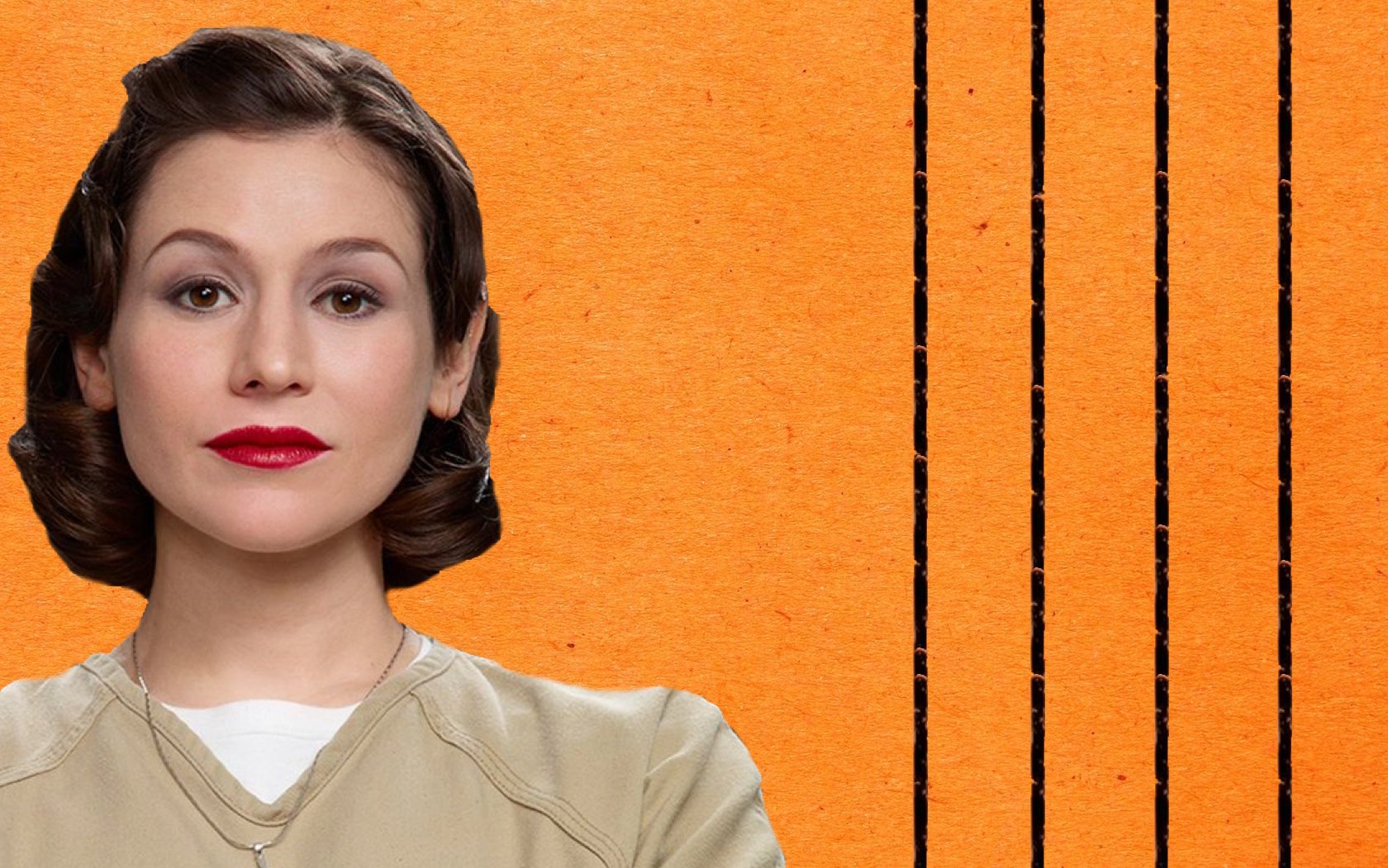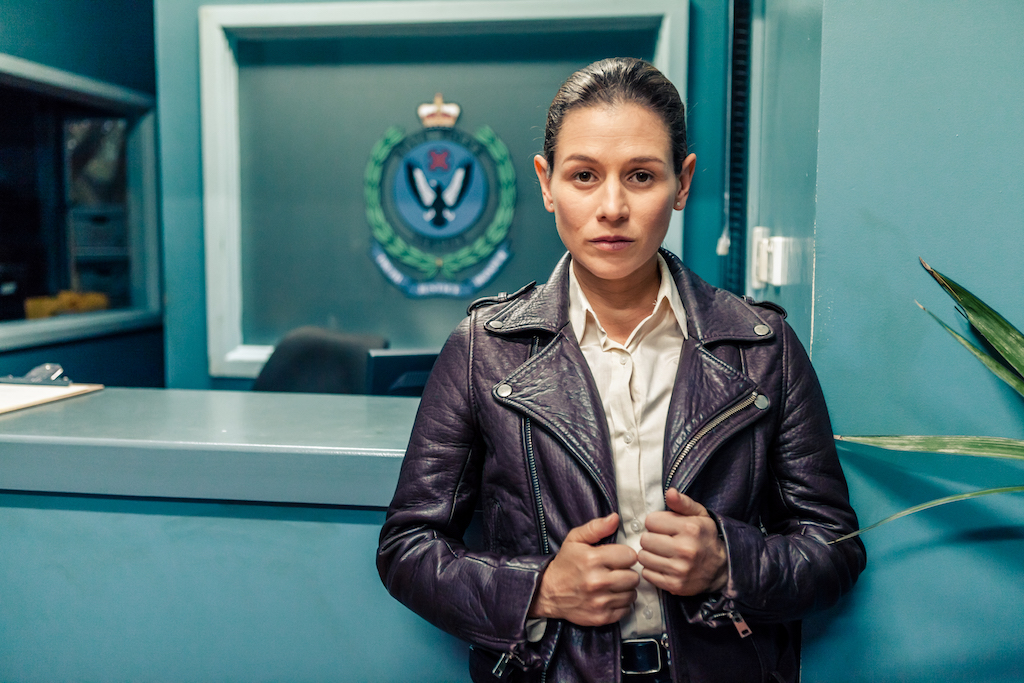
Netflix is the world’s leading internet television network, offering original series, documentaries and feature films. Watch anytime, anywhere, on any screen.
Perhaps the defining image of Yael Stone from the Netflix mega-hit Orange Is The New Black is one of her morose, wearing a wedding veil and sunk neck-deep in a bath. Her signature red lips are smudged, and so is her eyeliner: she looks sombre, terrifying and totally OTT.
This is how Stone is making her mark in Hollywood: as a wildcard, just a bit too much. And she is making her mark. Even in its fifth season, OITNB remains one of the most talked about TV shows in the world. And when Stone’s not on-set at Litchfield, she’s back home starring in the high-profile remake of Picnic At Hanging Rock, or acting alongside powerhouse stars like Glenn Close and John Malkovich.
As Stone’s star rises, it’s easy to forget that she’s a homegrown Aussie girl. Well… not for me, because Stone grew up in my suburb, went to my neighbouring primary school and attended a performing arts high school with one of my best friends. She and I also learned from the same drama teacher, a fact I’m quick to point out as we settle into our interview.
“Oh my goodness,” she exclaims, when I recount memories of her performing at end-of-year at concerts in a retro assembly hall in Sydney. “Oh my gosh, that’s incredible.” Stone might be approaching Hollywood elite, but off-screen she’s still just a Balmain ratbag.
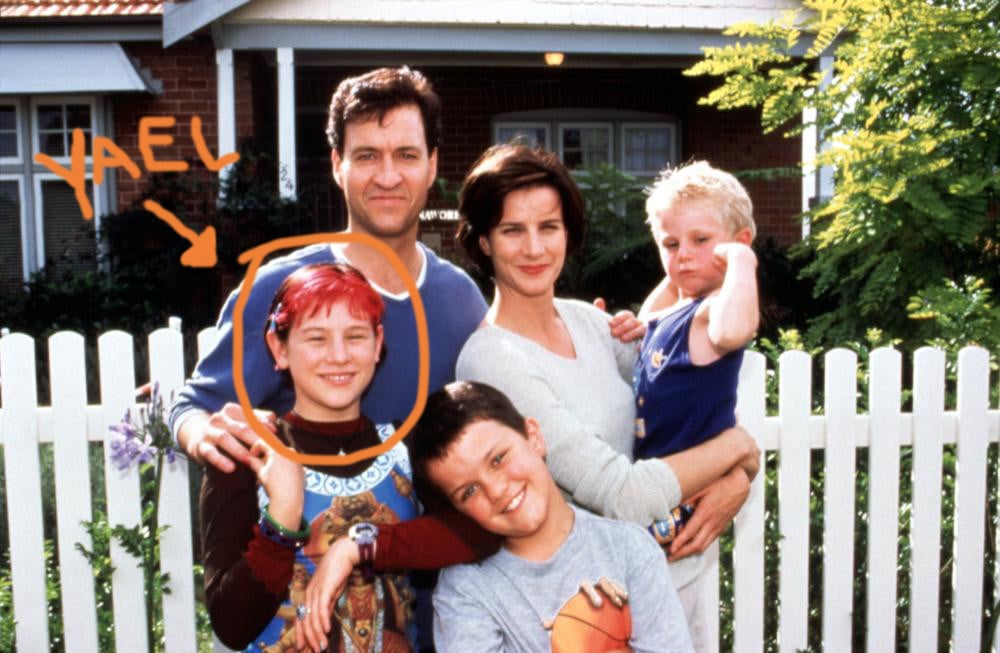
Yael Stone, age 13, in Me Myself I.
We spend the next five minutes swapping stories of our time with an inner-western Sydney institution: our drama teacher Robyn Fraser. Stone, who acted intensely from when she was a child, tells me Fraser “changed the course of my life in that she let me do things that were way beyond my years”.
And it’s true that Stone was often working “beyond her years”. She was on theatre and film sets as early as 13. She appeared alongside Rachel Griffiths in the Sliding Doors-esque Aussie film Me Myself I at just 15. And she recalls, chortling, how she would scare the other kids at drama eisteddfods across Sydney with twisted, “emo” Robert Browning poems, while the rest were performing passages from the Bible.
“I think I was probably going a little left field and a little too far ahead,” she tells me. “I would say that probably categorise my whole experience in the creative arts. Just a little left field and just a little too much, always. Every direction from every director I’ve have in my entire life is like, ‘That’s good, but maybe a little less?’.”
Being “too much” quickly becomes a theme of our conversation, especially when talking about her performance as Lorna Morello, the lovelorn Litchfield inmate Stone portrays on Orange Is The New Black. Morello’s most distinctive feature, aside from her bold red lipstick, is her American gangster accent — Stone’s invention, which New Republic called “the most amazing accent on television”.
“Well, that’s just a bit silly, isn’t it?” she argues good-naturedly. “That’s a bit of a silly thing. I feel very embarrassed about that article. Sometimes people quote it and I feel so embarrassed.”
Stone concocted the accent while exploring Boston and Brooklyn sounds in her bedroom in the days leading up to her audition. And she admits it was “a bit of a bold choice, I guess” to turn up at the audition as an “unknown” with the accent (and the signature red lips) already in place. “It was a bold leap. Like I said, I always do too much. That’s an example of too much, and sometimes too much works.”
I ask her if being “too much” has ever backfired. Stone replies honestly, “Sometimes it’s just a really ugly saviour.”
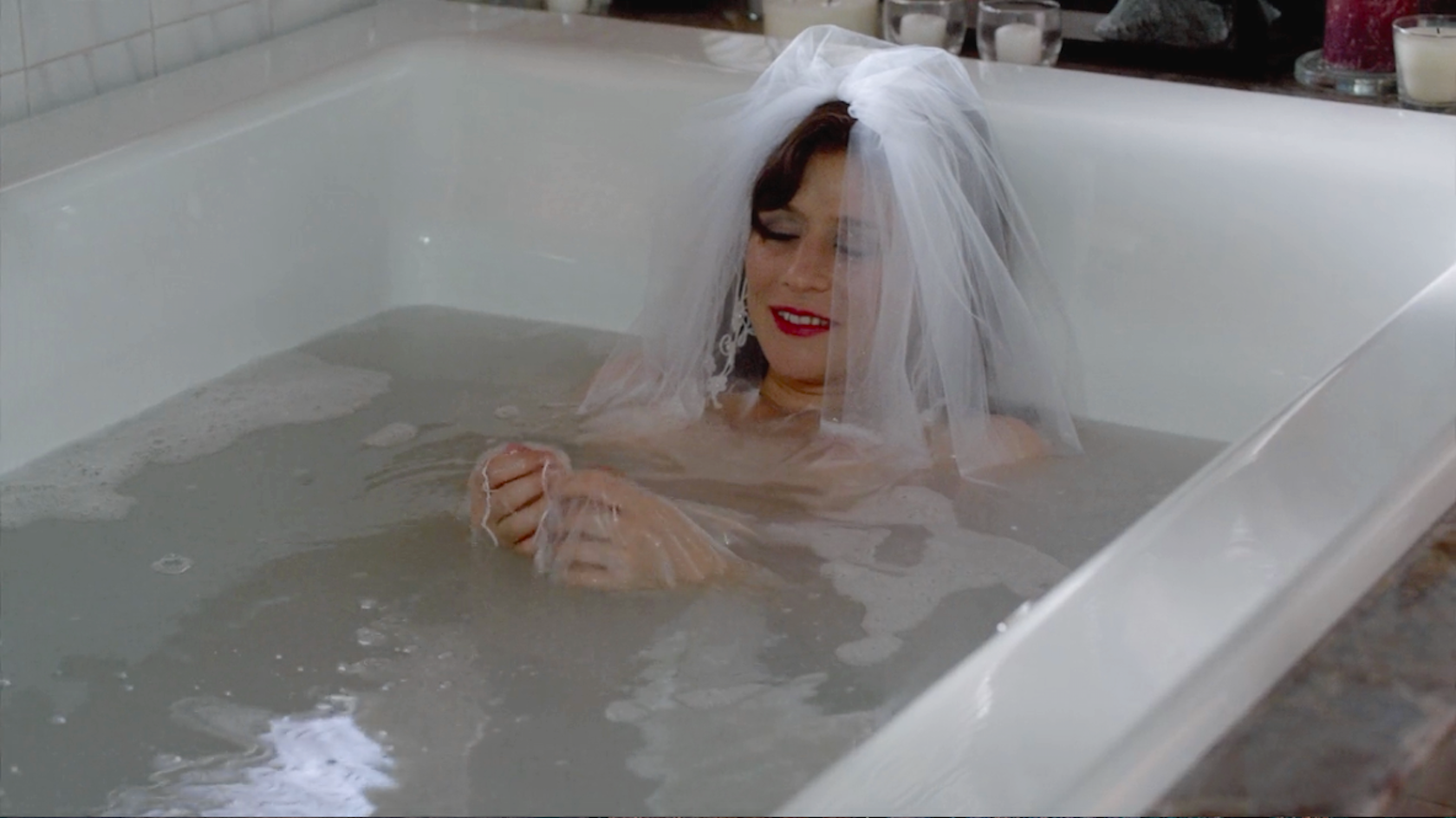
Junkee: You had a pretty performance-focused education. Was there ever anything else that you wanted to do, or was acting always just totally it for you?
Yael Stone: No. Not at all. The funny thing was I never noticed just how much of it I was doing. Even when I was at drama school, I was like, ‘Oh, what’s going on here?’. I couldn’t quite follow the fact that I was really, definitely an actor.
I wanted to be an architect. I did design and technology; that was my favourite subject through to Year 12 and I worked super hard at it for my HSC. My dad’s an architect so he was really into the architect idea, and I was really into it too. Then, I happened to get into NIDA [the National Institute of Dramatic Arts]. It took that moment where I was choosing whether to do one thing or the other. I think there was something about the excitement of going straight from high school and being accepted into NIDA. My little ego couldn’t say no.
I would say that I don’t know if your path is always set but I’ve certainly never been able to steer that course a different direction. I always find myself telling stories, so I don’t know if I can escape.
What was it like to be on these professional sets with all these grown-up actors when you were so young?
I was just reflecting on it recently because I’ve been working with a young woman — a 13-year-old called Inez Curro who is in Picnic At Hanging Rock. She plays a really pivotal role and is doing a great job. I had quite a few scenes with her; our characters were sworn enemies.
I just had a great time chatting with her and she’s really interesting — a smart young lady. I was kind of thinking, ‘Wow. That’s how old, or how young I was when I was in Me, Myself, I.’ I didn’t realise at the time how much it shaped the course of my professional life.
It’s a funny thing because a good director will never patronise anybody, no matter how old or how young they are, or their level of experience. A good director talks to a person in a local way. I think as a young person that can be quite addictive, because a lot of people in your life will be patronising when you’re little.
I’m also a very small person as well, so people often thought I was a lot younger than I actually was. There was something quite addictive coming in with ideas, making offers and having people take you seriously. That really appealed to my self-righteous little self, and I was deeply self-righteous as a 13 year old.
Very distinctly, I remember a moment working with Kate Woods (Looking for Alibrandi); I believe, one of our finest Australian directors. I just remember her talking right into me. Right to my very core. I thought and registered how extraordinary it was and there was something magic in this weird work where you go and pretend to be another person in pretend circumstances. We all engage in this mass pretend on the pretence that it’s incredibly important.
Your background is largely as a theatre performer. How much theatre do you still do?
I think being a good well-tuned theatre animal is one thing and I think I’m probably a little out of shape in terms of being a theatre animal. Not to say that I couldn’t get it back, it was just the particular skills of stamina and vocal technique that I would love to say, ‘Oh yes. All still there’, but I’m probably a little flabby around the edges.
“We need a version of the theatre that is open to everybody, that has audiences from everywhere coming along.”
I love the theatre and I’m an avid watcher of it, both in Australia and New York where I spend half of my year. That’s really cool to be clued-in to those communities in different continents. I always feel really welcome when I go home, or talk to people about what’s going on, or hear about the amazing things that my friends are creating. I don’t feel outside of that community — or maybe that’s a grand illusion of mine. I still feel included, which is what theatre should be.
If we could make it even more welcoming to everybody that would be even better. There’s probably a version of the theatre that is open to everybody, that has audiences from everywhere coming along. I think at the moment it’s the price of tickets that is hard to get around. I would love to find a way that we could make theatre ticket prices cheaper so everyone could have that feeling of inclusion that I’m talking about.
Tell me a bit more about Orange Is The New Black. How did you get that role? It just seems so… it’s such a big opportunity.
I was actually just a total nobody in New York. I was complete ‘walk in off the street’ energy because you start all over again when you move to a new country. I went into that audition with the accent there. I remember that I didn’t say ‘hello’ to the casting person. I just smiled and nodded, sat down and started that audition tape.
It was a great thing to be completely unknown because I could be undercover. That accent could have been mine. It gave me a great bravado to be like, ‘Yeah. This is me. Sure’.
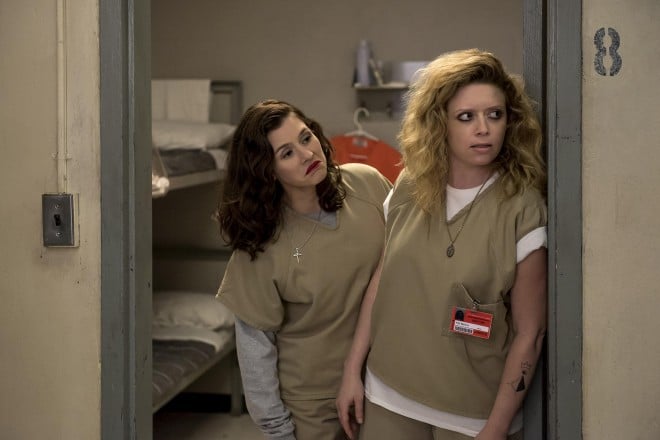
I initially auditioned for Nicky Nichols. They were like, ‘That’s not quite right but we like you’. I went back as Lorna. It was just extraordinary. I was filming on that first episode and, like a lot of characters on that show, if they wanted to see more of you they kept bringing you back.
Those of us who were lucky enough to be brought back again, and again, and again, and again, we’re so grateful that we’re here, about to be going into our sixth season. We’ve gained a family in each other. It’s changed all of our lives.
What was it like on the set of Orange Is The New Black? It seems like a pretty fun group.
It’s awesome. It’s lovely. We are happy. We are in love. We are overjoyed. We are a really supportive group. Sometimes it’s a raucous party and everyone is hanging out, and sometimes you’re waiting for eight hours to shoot a small thing and say one word in the cafeteria. It’s like all jobs — it has amazing moments and other moments where you’re like, ‘Wow, I think I’m losing my mind’.
All in all, I would say it’s the most fun of all the experiences I’ve had. I’ve had a stroke of good luck to be able to learn so much. I feel like all of these experiences make me, hopefully, a richer human being — and a better actor. That’s really what the objective is for me at the end of the day: to be a good artist in service of being a good human being.
How do you feel about the show? I mean, it’s such a complete insane success.
Lucky! I feel good about it. I feel like it’s very rare. It’s an absolute shot in the dark when you work on something. You just never know how people are going to respond to it. And you never know what kind of impact it’s going to have.
“Orange Is The New Black landed at this really particular moment in time.”
The thing with Orange, is that it just landed at this really particular moment in time. It was the start of Netflix; we’d never had streaming television like that before in the particular political climate where we were ready to talk about the criminal justice systems and the great failures of that system.
People were interested in learning more about it. People were hungry to have diverse actors on their screens. They were hungry to see more women and more female stories. We had one of the first lead character transgender stories. It was an extraordinary moment that we launched off from, and from that we got this incredible fan base.
We’re continuing to tell really relevant, challenging, socially illuminating stories. I just feel so lucky to be a part of that and to represent such a melting pot and for that to translate — even though it’s an American experience. For that to translate so broadly across the world says something about where we are at as a global community.
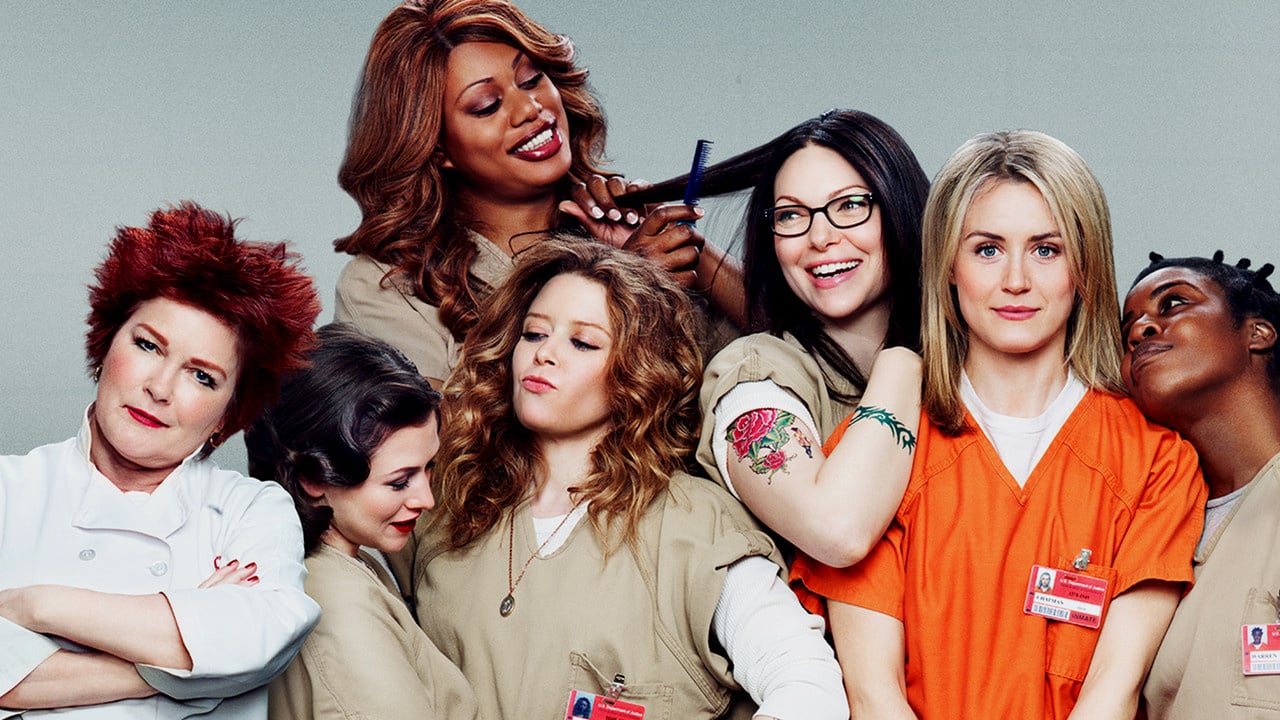
Do you notice a big difference between working in the US and Australia?
Yes, there’s difference in people’s sense of humour. There’s a difference in every production. Just the quality of every production with the people on the crew, the people in the cast, it’s like a year at school. Every year at school has their different qualities because of the folks that make it and are part of it.
And the content of what you’re making, if you’re part of a really dark show, sometimes that will affect the mood. In a way, the humour will be turned up even more because that’s how you’re going to survive a dark shoot. Or sometimes the whole thing will be a bit more sombre or reserved or quiet, and needs to be more respectful because of the kind of work that people are doing in front of and behind the camera.
And is it fun to come back and work on an Australian TV show?
Oh, it’s amazing. I love it. I’ve just had so much fun. I came back three years ago and did an American show that was shot in Australia. That was one thing. But to come back and to have done Deep Water, which I’m so proud of. It is just a really excellent production.
To have done that and to have done Picnic, is just… it’s my dream to be able to balance all of these things out. I’m absolutely pinching myself every day, grateful for this very odd balancing act that is my life/work logistics.
I think, most importantly, to be telling Australian stories is so key because I am Australian and I do feel that culture and that history. Obviously I’m not just talking about our white colonial history, but we have a really rich nation and lots of stories to tell. Where I’m able to be a part of that, I think it’s really important. Both of these stories — Deep Water and Picnic At Hanging Rock — they reach deep into our psyche.
There’s a kind of darker underbelly there and some really key cultural points. Exploring national character and exploring our stories and our psyches is super important to me.
—
Yael Stone will deliver the keynote address at Video Junkee 2017. You can get your tickets here.
—
Matilda Dixon-Smith is Junkee’s Staff Writer. She tweets at @mdixonsmith.

Netflix is the world’s leading internet television network, offering original series, documentaries and feature films. Watch anytime, anywhere, on any screen.
